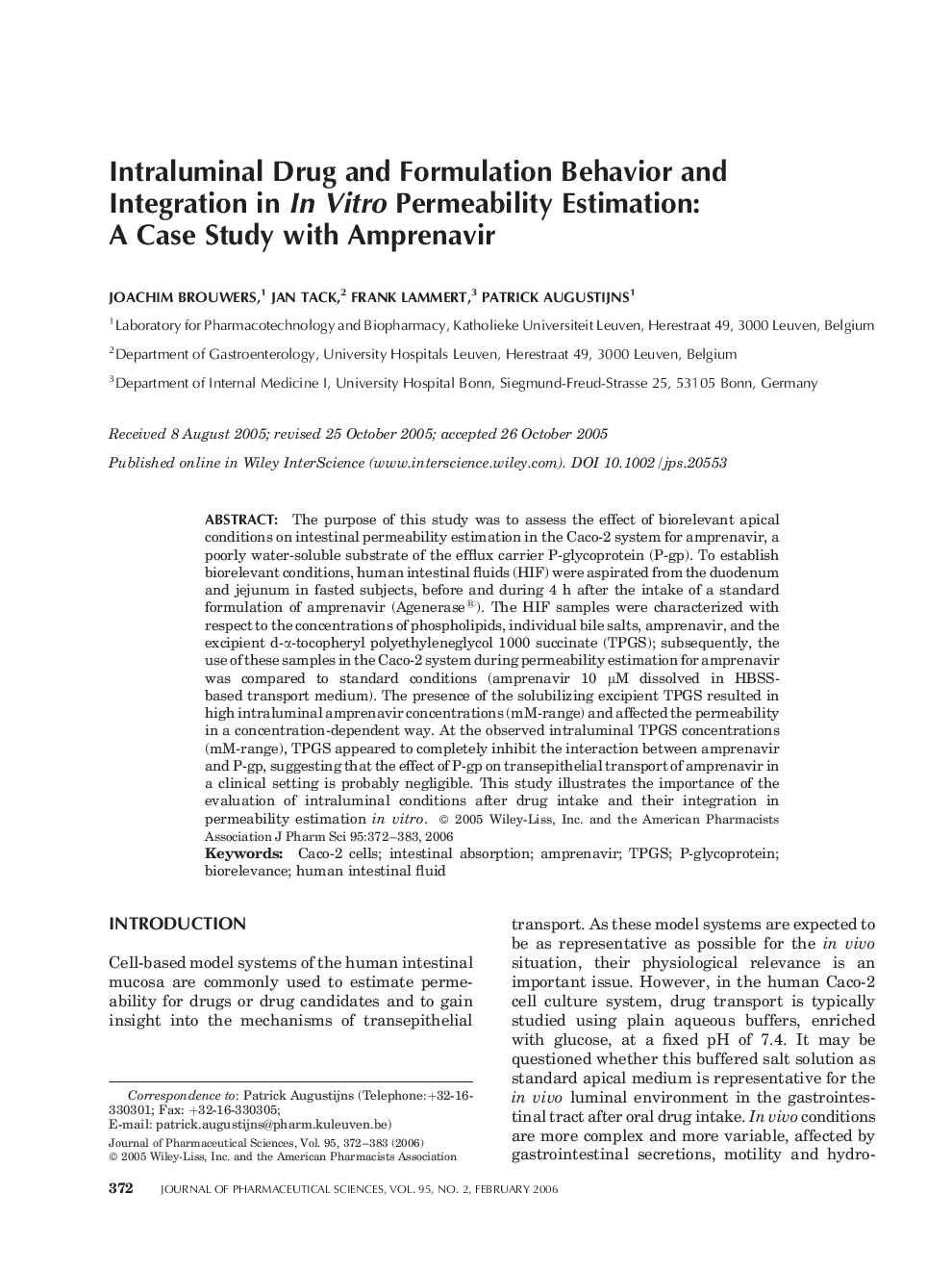| Article ID | Journal | Published Year | Pages | File Type |
|---|---|---|---|---|
| 2487162 | Journal of Pharmaceutical Sciences | 2006 | 12 Pages |
Abstract
The purpose of this study was to assess the effect of biorelevant apical conditions on intestinal permeability estimation in the Caco-2 system for amprenavir, a poorly water-soluble substrate of the efflux carrier P-glycoprotein (P-gp). To establish biorelevant conditions, human intestinal fluids (HIF) were aspirated from the duodenum and jejunum in fasted subjects, before and during 4 h after the intake of a standard formulation of amprenavir (Agenerase®). The HIF samples were characterized with respect to the concentrations of phospholipids, individual bile salts, amprenavir, and the excipient d-α-tocopheryl polyethyleneglycol 1000 succinate (TPGS); subsequently, the use of these samples in the Caco-2 system during permeability estimation for amprenavir was compared to standard conditions (amprenavir 10 µM dissolved in HBSS-based transport medium). The presence of the solubilizing excipient TPGS resulted in high intraluminal amprenavir concentrations (mM-range) and affected the permeability in a concentration-dependent way. At the observed intraluminal TPGS concentrations (mM-range), TPGS appeared to completely inhibit the interaction between amprenavir and P-gp, suggesting that the effect of P-gp on transepithelial transport of amprenavir in a clinical setting is probably negligible. This study illustrates the importance of the evaluation of intraluminal conditions after drug intake and their integration in permeability estimation in vitro. © 2005 Wiley-Liss, Inc. and the American Pharmacists Association
Related Topics
Health Sciences
Pharmacology, Toxicology and Pharmaceutical Science
Drug Discovery
Authors
Joachim Brouwers, Jan Tack, Frank Lammert, Patrick Augustijns,
